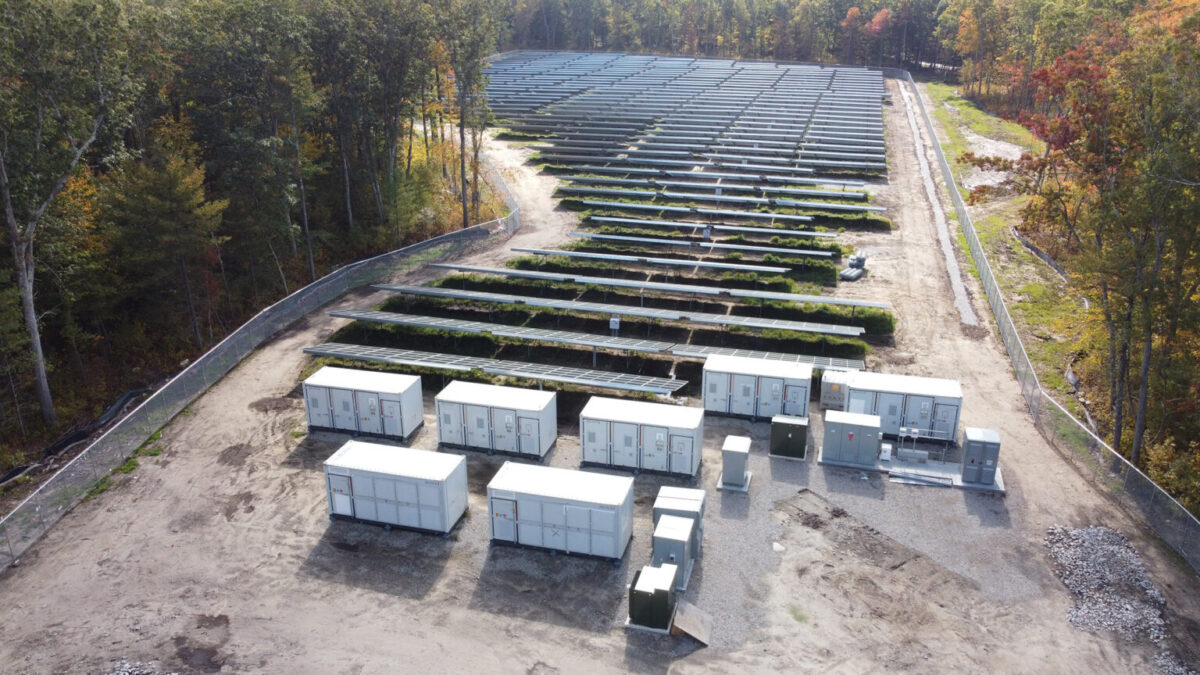The Bulgarian Ministry of Energy has launched two renewables-plus-storage tenders to the tune of BGN 535 million ($298 million), accepting bids from companies in all sectors except agriculture, forestry, and fishery.
The procurement exercises, launched under Bulgaria’s National Plan for Recovery and Sustainability, aim to facilitate 1,425 MW of solar and wind generation capacity coupled with 350 MW of energy storage projects, said the ministry.
The first tender, with a total budget of BGN 107.6 million, will finance the construction of solar and wind projects and co-located energy storage facilities with installed capacities between 200 kW and 2 MW. The procedure seeks to facilitate the development of at least 200 MW of renewable energy production and 100 MW of energy storage.
There is no minimum amount of financing, and the maximum amount per project proposal is up to BGN 35.9 million. The grants will cover up to 50% of the eligible costs, but not more than BGN 1.08 million per 1 MW of installed energy storage capacity.
The second procurement exercise, with a budget of BGN 427.5 million, will support new solar and wind projects and energy storage facilities with a total installed capacity of more than 200 kW. The procedure aims to develop at least 940 MW of renewable energy generation and at least 200 MW of energy storage.
Popular content
The bidders can apply for financing of up to BGN 58.7 million per project. The grants will cover up to 50% of the eligible costs, with a maximum of BGN 743,215 per megawatt of installed energy storage capacity.
The deadline for submitting project proposals is June 12, 2024. The proposals should not exceed one-third of the total capacity quota allocated for energy storage facilities under each procedure.
The announcement of the tenders follows a public consultation that was launched in October 2023. The Bulgarian government has committed to phasing out coal by 2038. In May 2023, it launched a scheme to ramp up installations of solar water heating systems, rooftop PV arrays and batteries.
Bulgaria closed 2023 with more than 1 GW of new PV generation capacity on its grid. That brought the nation’s cumulative total close to 3 GW, just shy of Bulgaria’s 3.2 GW National Energy and Climate Plan target for 2030. The achievement is particularly remarkable given that Bulgaria took only about three years to triple its installed PV capacity from around 1 GW at the end of 2020.
This content is protected by copyright and may not be reused. If you want to cooperate with us and would like to reuse some of our content, please contact: editors@pv-magazine.com.



4 comments
By submitting this form you agree to pv magazine using your data for the purposes of publishing your comment.
Your personal data will only be disclosed or otherwise transmitted to third parties for the purposes of spam filtering or if this is necessary for technical maintenance of the website. Any other transfer to third parties will not take place unless this is justified on the basis of applicable data protection regulations or if pv magazine is legally obliged to do so.
You may revoke this consent at any time with effect for the future, in which case your personal data will be deleted immediately. Otherwise, your data will be deleted if pv magazine has processed your request or the purpose of data storage is fulfilled.
Further information on data privacy can be found in our Data Protection Policy.